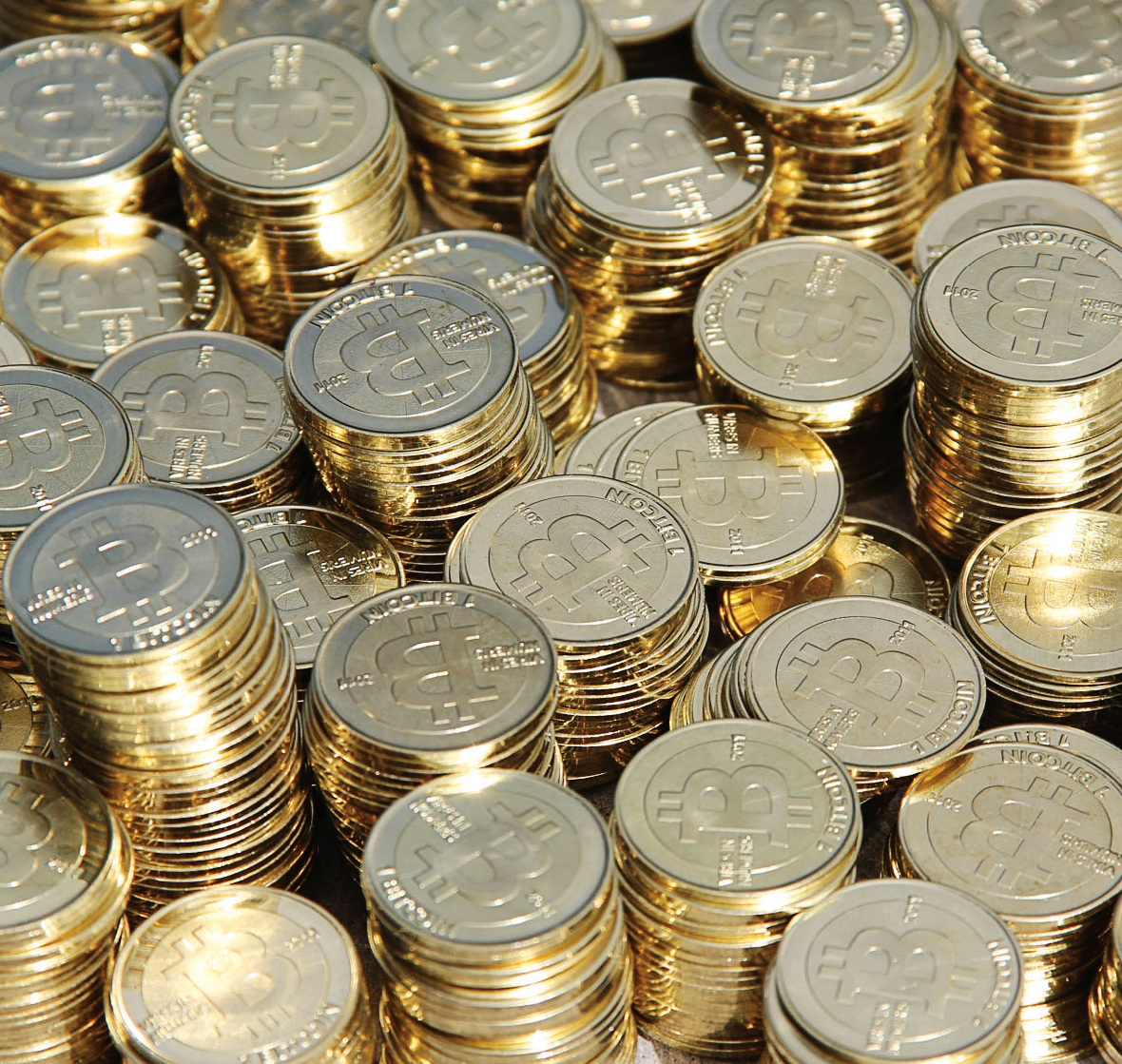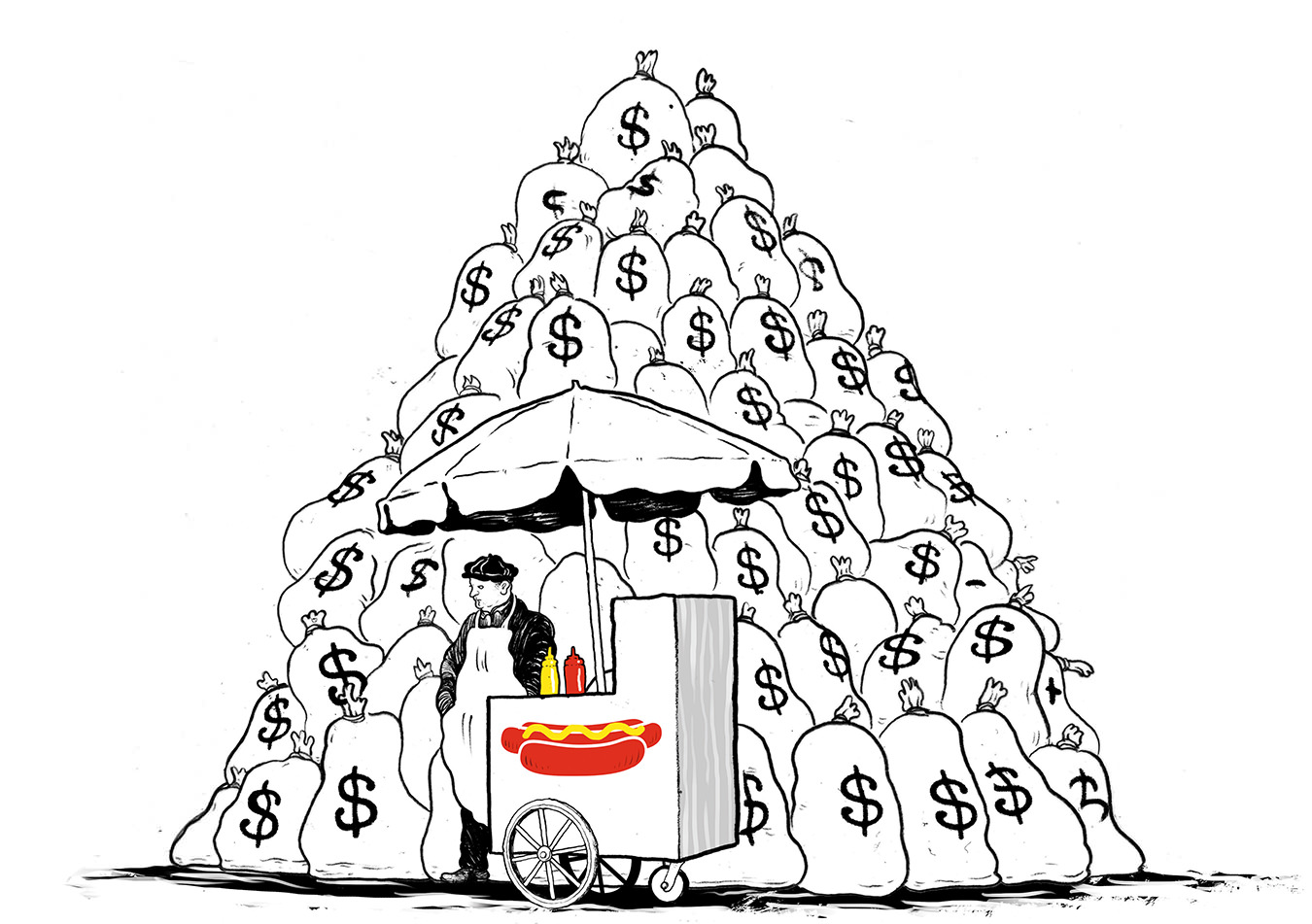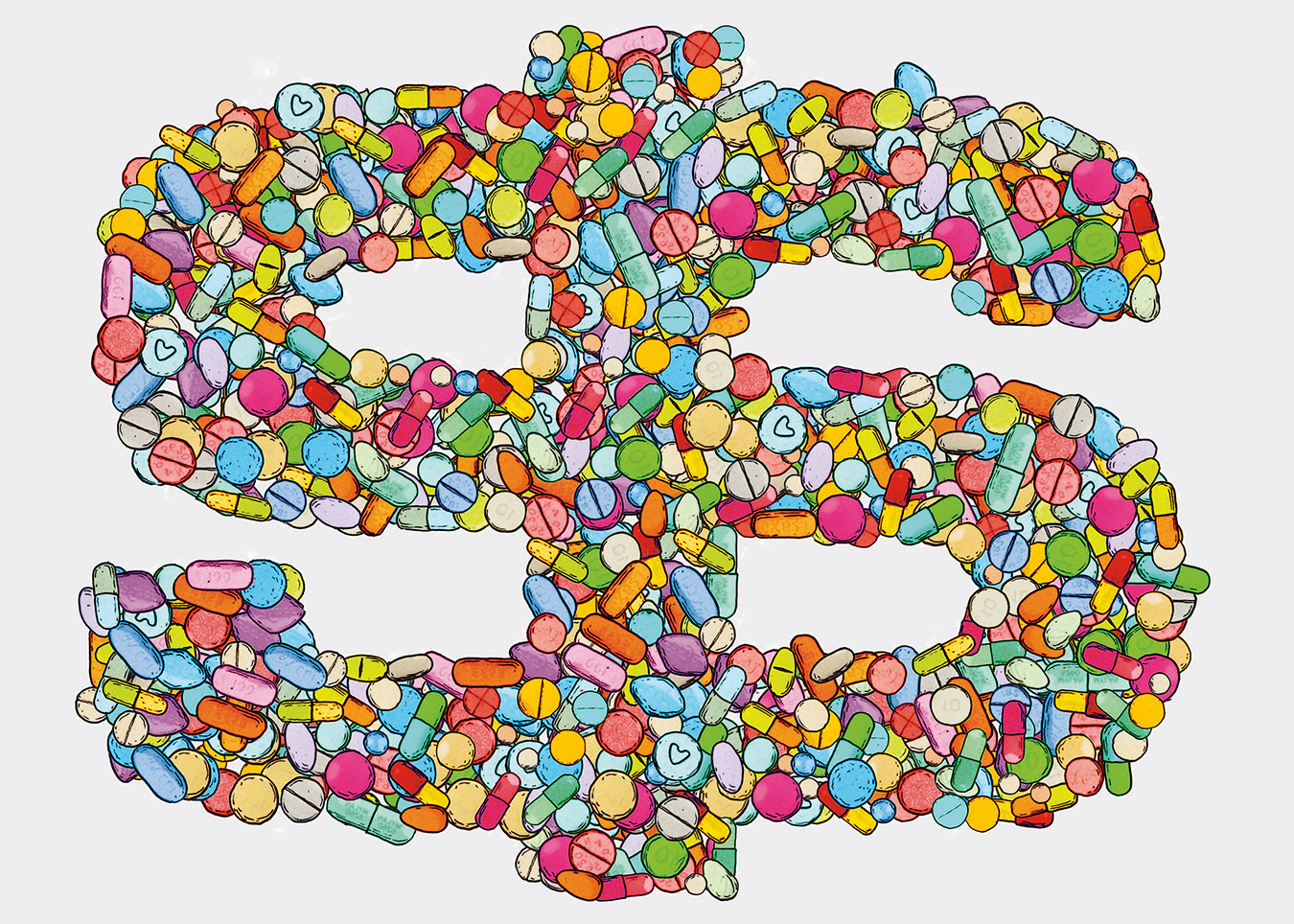Digital Currency
A new specie.

Bread. Cabbage. Dough. Green. Moolah. Scratch. Call it what you will—it makes the world go round. Without the coins, paper, and magnetized pieces of plastic we use to buy and sell things every day, no doubt more than Wall Street would be affected: chances are that civilization itself would grind to a halt in short order.
Not to say that something essential isn’t due for an upgrade once in awhile. What with the widespread adaptation of smart phones and advances in wireless security, change is afoot in the world of commerce. The day is rapidly nearing when consumers need never get their hands sullied by filthy lucre again—mostly because they will never see it.
Virtual Wallet was the first example of such a digital upgrade. Introduced by Pittsburgh’s PNC Financial Services Group back in 2008, the service linked a chequing account to a smart-phone app. Users could transfer funds, pay bills, and manage their finances with a couple of convenient swipes and finger pinches. Most banks now offer similar apps.
There’s a truism in tech-land: if you’ve got a good idea, it won’t be long before Google rips it off and does it better. So it was with Virtual Wallet. Announced in May 2011 and officially launched that September, the high-tech behemoth rolled out the prosaically named Google Wallet, turning Android-powered phones into pocket-sized vaults stored with credit cards, debit cards, store-specific gift cards, and similar forms of payment. Instead of swiping a card, users tap their phone on an affiliated point-of-sale system, and near field communication (a short-distance radio transmission) takes care of the rest.
It’s an idea that’s catching on. A bunch of big-name retailers have partnered with Google to develop and refine the system—everyone from McDonald’s to the Home Depot to Toys “R” Us now accepts Google Wallet. And you can see why: unlike MasterCard, Visa, or PayPal, Google doesn’t charge users or merchants for access. Instead, it sells sponsored ads and Groupon-like coupons as a way of producing revenue.
Innovative though they may be, alternate payments are only the start of the techno-currency revolution. Where electronic wallets seek to connect you to the existing financial system in a new way, virtual currencies such as e-gold, Bitcoin, Ripple, MicroCash, and others help you break such connections altogether.
The most popular of these: Bitcoin. Created in 2009 by Japanese developer Satoshi Nakamoto (a pseudonym for the as-yet-anonymous real developer[s]), the Bitcoin economy is an unregulated international monetary system distinct from the world of dollars, euros, and yen.
Beyond its geek appeal, the main attraction of Bitcoin is the ability to cut out the financial middleman. Instead of walking up to a teller and opening an account, you set up an online Bitcoin wallet file. Every time you buy or trade for Bitcoins, your payment will be made to an address composed of between 27 to 34 characters, which contains a private key that proves your right to spend Bitcoin. Time to exchange your Bitcoins back into fiat currency? One of the dozen or so major digital currency exchangers can help you for a small commission. Such a system makes fund transfer simple, cost-efficient, and anonymous: a godsend for all those looking to remain one step ahead of the taxman—or Interpol for that matter.
Unlike other currencies, the number of Bitcoins is strictly limited: new Bitcoins are “mined” by hundreds, perhaps thousands, of individual computers that join together to solve complex mathematical problems. Each problem solved results in a reward of Bitcoins, while creating a new problem (a “block”) to solve. Every four years, the amount of Bitcoins available for mining decreases by 50 per cent, making Bitcoins more and more rare.
And more valuable: originally issued at more than 1,300 per U.S. dollar (a rough calculation based on the average monthly cost of electricity required to run a dedicated Bitcoin mining computer, divided by the number of Bitcoins mined in an average month), the value of the world’s 11-million or so circulating Bitcoins has fluctuated widely over the years—or indeed, over a single week. On April 10, 2013, a single Bitcoin traded for $266 (U.S.). A mere six days later, it was worth $50 (U.S.). One week after that, it had climbed back to $146 (U.S.). Next week: Who knows?
Will bits and bytes replace dollars and cents? So far, so good: several merchants and service providers (the majority of them online) have started accepting Bitcoin. The aptly named Pizza for Coins website offers the tech-savvy the ability to pay for their pepperoni pizza from Domino’s in Bitcoins. And just last month, Taylor More, a resident of Coleman, Alberta, near the Crowsnest Pass, offered his 2.97-acre property for sale for either 405,000 loonies or the equivalent value of Bitcoins—your choice.
As long as it’s been around, money has been tinkered and tampered with—to control its circulation, to support local merchants, to stroke an emperor’s ego. In this, Bitcoin is no different than anything that has come before it: a currency uniquely of its time, tailor-made for the brave new world of the Internet, created by the princes of the Information Age.
But there is something else going on, too. All currency, no matter what its form or source, depends to some degree on faith: a belief that it may be exchanged for tangible goods, that it will retain its value over time, that it will be honoured the next time its user has to buy a coffee or pay the mortgage. After a decade of bubbles and blow-ups, bankruptcies and bailouts, faith in the financial system is in short supply.
In this, the decentralized, deregulated Bitcoin economy is the ultimate repudiation of the existing financial system: a burning bag of you-know-what left on the doorstep of Big Money. For those who believe the time has come to turn their backs on the banks and other institutions that got us into this mess, there is a new rallying cry: cash is dead, long live the coin.
Photo provided by Bitcoin.org.




